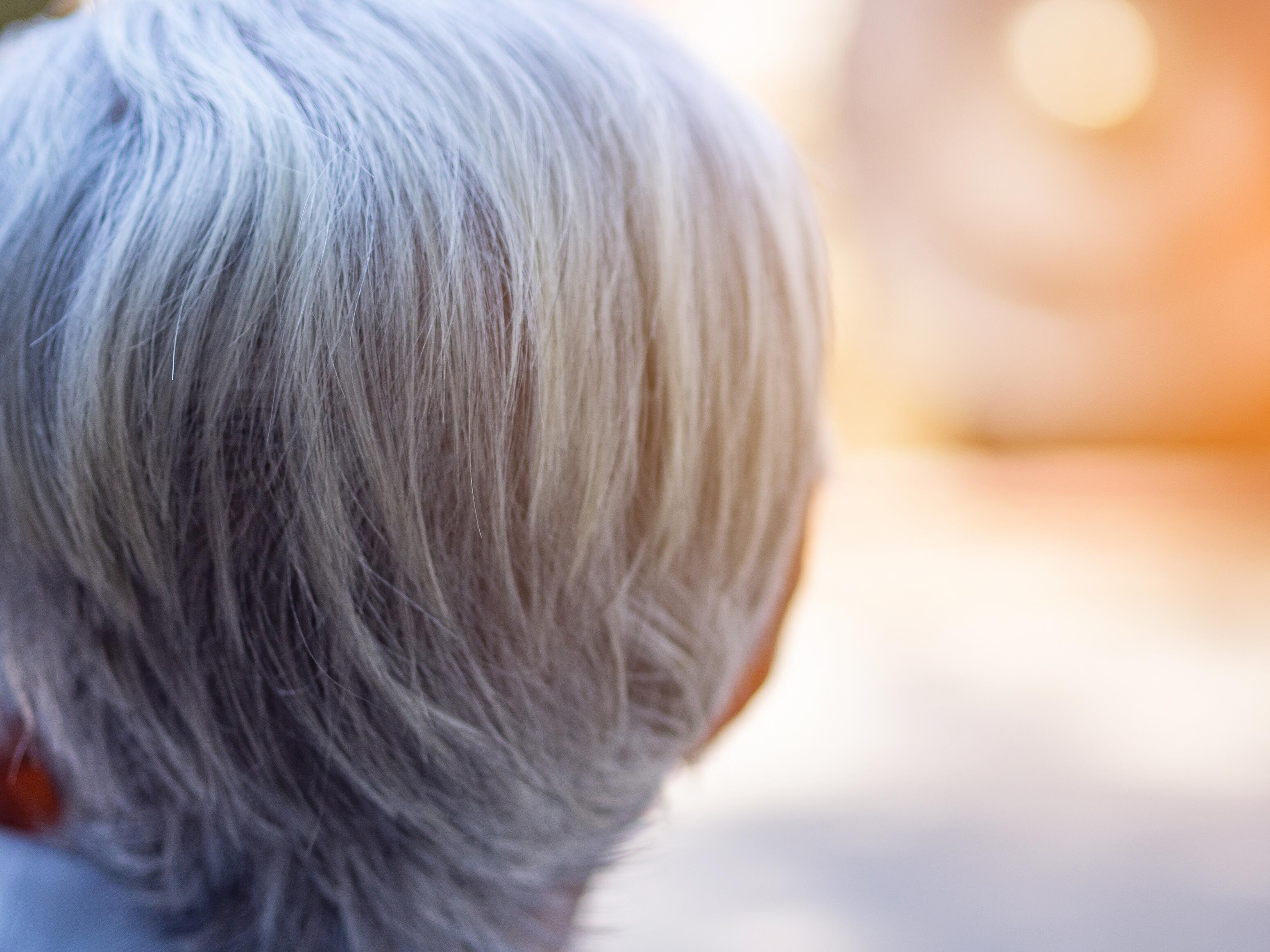Why does hair fall out during menopause?
Hair loss during menopause is referred to as hormonal hair loss. It is in fact the result of a hormonal imbalance because it is linked to a decrease in the production of estrogen and progesterone. These hormones usually have a positive effect on the hair growth phase (anagen phase): they increase its duration and stimulate hair growth. When estrogen and progesterone levels drop during menopause, hair grows more slowly and becomes thinner.
A decrease in estrogen and progesterone also triggers an increase in the production of androgenic hormones, such as testosterone. Androgens have a negative effect on hair follicles: they induce a progressive miniaturization of the hair. This leads to a decrease in hair density, allowing the scalp to show through. On the other hand, androgen hormones have an opposite effect on hair and can stimulate its growth. This is why some menopausal women see downy hair appear on their face and small hair growth on their chin.
Hair loss during menopause is almost always related to hormonal changes. Other factors can add to the problem and intensify menopausal hair loss. These include stress, fatigue, illness, drugs or lack of certain nutrients.
How to stop hair loss caused by menopause
- Consulting a dermatologist, a hair and scalp specialist. A medicinal treatment based on minoxidil can be prescribed to limit menopausal hair loss;
- Reducing the use of hair straighteners, hair dryers and other heating devices that damage the hair, and favoring natural coloring. Using thickening shampoos and conditioners can also improve the appearance of hair;
- Eating a healthy and varied diet to stimulate healthy hair growth. A nutritional check-up can be useful at the time of menopause;
- Applying cosmetic lotions formulated to stimulate hair growth. They take 1 to 2 months to take effect and must be used regularly. Their effect can be complemented by taking a food supplement to provide the hair with all the nutrients it needs to grow.
Does hair grow back after menopause?
Most menopause-related hair loss slows down over time. However, since estrogen and progesterone levels do not return after menopause, it is possible that a change in hair quality may persist, and some women may find that their hair continues to thin as they age.

